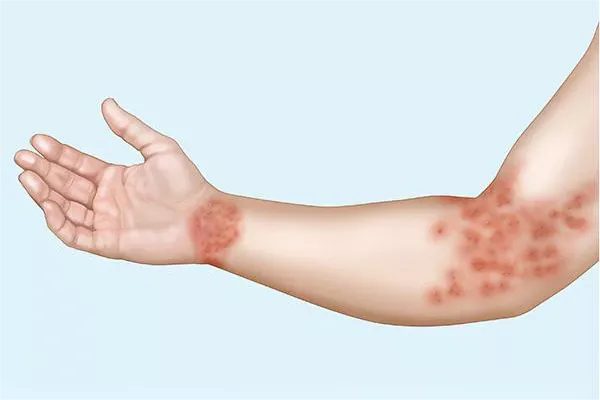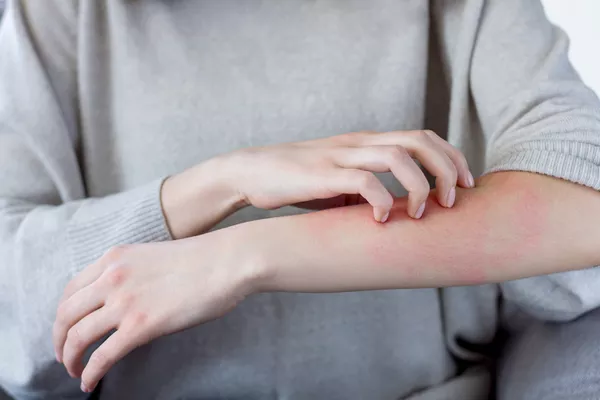Eczema, a chronic skin condition characterized by inflammation, itching, and redness, affects millions worldwide. While it often begins in infancy, it can manifest at any age. Recognizing the early signs of eczema is crucial for prompt intervention and management. In this article, we delve into the various symptoms that may indicate the onset of eczema, empowering individuals to seek timely medical attention and adopt appropriate skincare practices.
Understanding Eczema: A Brief Overview
Before delving into the signs of eczema, it’s essential to understand the condition itself. Eczema, also known as atopic dermatitis, is a complex inflammatory skin disorder that results from a combination of genetic, environmental, and immunological factors. It typically involves periods of exacerbation and remission, with symptoms varying in severity from mild itching to intense discomfort and even pain.
The First Signs: Early Indicators of Eczema
1. Dry, Itchy Skin: One of the earliest signs of eczema is persistent dryness and itching of the skin. This symptom often precedes the development of visible rashes or lesions. Individuals may experience itching that worsens at night or in response to certain triggers such as heat, sweat, or irritants like harsh soaps and detergents.
2. Red or Inflamed Patches: As eczema progresses, affected areas of the skin may become red, inflamed, and tender to the touch. These patches can vary in size and shape, appearing anywhere on the body but commonly affecting the face, neck, elbows, knees, and hands. The skin may feel rough or bumpy, and scratching can lead to further irritation and potential infection.
3. Eczematous Rash: A hallmark sign of eczema is the development of a distinctive rash characterized by raised, scaly patches or plaques. These lesions often ooze fluid and may crust over, especially if scratched excessively. The rash can be intensely itchy, prompting individuals to scratch, which exacerbates inflammation and contributes to a vicious cycle of itching and scratching known as the “itch-scratch cycle.”
4. Skin Discoloration: In some cases, eczema can lead to changes in skin pigmentation, causing affected areas to appear darker or lighter than the surrounding skin. This discoloration, known as post-inflammatory hyperpigmentation or hypopigmentation, may persist even after the eczema flare-up resolves.
5. Thickened or Lichenified Skin: Chronic scratching and rubbing of affected areas can result in thickened, leathery skin known as lichenification. This is a common complication of long-standing eczema and may require additional interventions to manage.
6. Symptoms of Secondary Infection: Prolonged scratching can compromise the skin’s natural barrier, making it more susceptible to bacterial or fungal infections. Signs of infection in eczematous skin include increased redness, warmth, swelling, pain, and the presence of pus or drainage. Prompt medical attention is essential to prevent complications and facilitate healing.
Distinguishing Eczema from Other Skin Conditions
While the aforementioned signs are indicative of eczema, it’s essential to differentiate it from other skin conditions with similar presentations. Conditions such as psoriasis, contact dermatitis, fungal infections, and allergic reactions can mimic eczema but may require different treatment approaches. Consulting a healthcare professional for an accurate diagnosis is crucial for effective management.
Seeking Professional Evaluation and Treatment
If you or a loved one experience any of the aforementioned symptoms suggestive of eczema, it’s imperative to seek evaluation by a qualified healthcare provider. A dermatologist or primary care physician can conduct a thorough assessment, including a medical history, physical examination, and, if necessary, additional tests to confirm the diagnosis and identify potential triggers or underlying factors contributing to eczema flare-ups.
Treatment and Management Strategies
Once diagnosed, the management of eczema typically involves a multifaceted approach aimed at alleviating symptoms, preventing flare-ups, and improving overall skin health. Treatment modalities may include:
1. Topical Steroids and Immunosuppressants: These medications help reduce inflammation and relieve itching associated with eczema flare-ups.
2. Emollients and Moisturizers: Regular application of moisturizing creams or ointments helps hydrate the skin and strengthen the skin barrier, reducing the risk of flare-ups.
3. Avoidance of Triggers: Identifying and avoiding triggers such as certain foods, environmental allergens, stress, and irritants can help minimize eczema symptoms.
4. Lifestyle Modifications: Adopting a skincare routine that includes gentle cleansing practices, avoiding hot showers, wearing breathable fabrics, and managing stress through techniques such as meditation or yoga can complement medical treatment and promote skin healing.
In severe cases or those resistant to conventional therapies, systemic medications or phototherapy may be considered under the guidance of a dermatologist or allergist-immunologist.
Conclusion
Early recognition of the signs of eczema is paramount for timely intervention and effective management of this chronic skin condition. By familiarizing themselves with the symptoms discussed in this article and seeking prompt medical evaluation, individuals can take proactive steps to address eczema and improve their quality of life. With proper treatment and skincare practices, individuals living with eczema can successfully manage their condition and enjoy healthier, more comfortable skin.
Related Topics:
How Are Eczema and Asthma Related


























